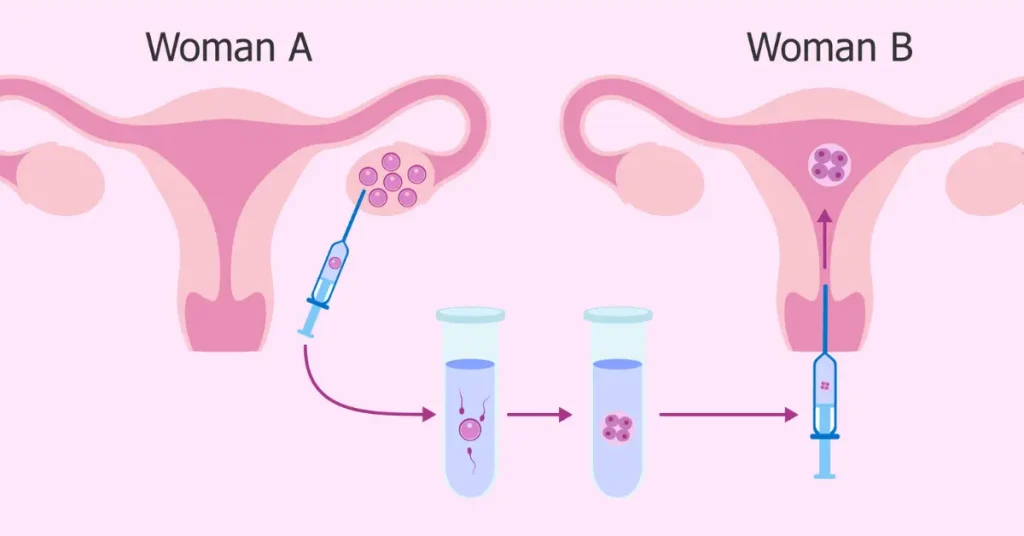Let’s talk about surrogacy in Spain. If you’ve been looking into this option, you might already know that it’s not easy. In fact, Spain has some of the strictest laws when it comes to these arrangements. Many hopeful parents get frustrated when they learn about these restrictions. Today, we’ll break down why surrogacy in Spain is so challenging and what alternatives might work better for your family-building journey.
The Legalities Of Surrogacy In Spain Explained
Simply put, surrogacy in Spain is not legal. The Spanish legal system considers any contract null and void. This means if you sign an agreement with a mother in Spain, the courts won’t recognize it at all.
The main law that prohibits surrogacy in Spain is Article 10 of Law 14/2006 on Assisted Human Reproduction Techniques. This law clearly states that any contract involving surrogacy is legally invalid. Under Spanish law, the woman who gives birth is always considered the legal mother, regardless of genetic connection.
What’s even more important to understand is that attempting surrogacy in Spain could potentially lead to criminal charges. The Spanish legal system takes these matters very seriously, which is why many citizens look to other countries for options.
Why Surrogacy In Spain Is Illegal
Many wonder why Spain takes such a firm stance against surrogacy. The reasons come down to a mix of cultural, ethical, and legal considerations.
First, there’s a strong concern about the potential exploitation of women. Spanish lawmakers worry that surrogacy arrangements might take advantage of financially vulnerable women. They fear creating a system where women’s bodies become commodities.
Second, Spain has traditional views on family formation that influence its laws. The country places high importance on the connection between birth and motherhood. In Spanish legal thinking, the act of giving birth establishes motherhood in a way that can’t be transferred through contracts.
Religious influences also play a role in shaping these attitudes. Spain has strong Catholic traditions, and the Catholic Church has expressed opposition to surrogacy as being against natural law.
How New Laws In Spain Made Surrogacy Even MORE Illegal Recently
Just when some families thought they might find workarounds, Spain tightened its restrictions even further. In recent years, some Spanish citizens had been traveling abroad for surrogacy and then registering their children at Spanish consulates. This created a legal pathway to bring surrogate-born children back to Spain.
However, in 2025, Spain closed this loophole. The government issued new regulations that specifically target international surrogacy arrangements. These changes make it harder than ever for Spanish families to pursue surrogacy, even outside Spain’s borders.
The government argues these stricter measures protect women and children from exploitation. Critics say they simply force desperate families into more complicated and expensive situations.
The New 2025 Rule On Surrogacy In Spain Explained
On May 1, 2025, Spain implemented a new rule that specifically bans Spanish embassies and consulates from registering babies born through surrogacy in foreign countries.
This is a major change that affects many families.
According to the new regulation, even if surrogacy is legal in the country where the child is born, Spanish diplomatic offices cannot process the registration. This creates significant hurdles for Spanish citizens who pursue surrogacy abroad.
The Spanish Ministry of Justice stated that this change aims to protect both surrogates and children. However, it creates serious complications for families. Parents now face a complex legal process to establish parental rights when returning to Spain with a child born via surrogacy.
Some key points about the new rule:
- It applies to all Spanish consulates worldwide
- It affects both traditional and gestational surrogacy arrangements
- Genetic connection to the child doesn’t override the restriction
- Parents must now pursue adoption or other legal processes
- The rule is retroactive in some cases, affecting pending applications


Which Countries Offer Legal Surrogacy?
With surrogacy in Spain being off the table, many families look to other countries. Fortunately, several nations have more supportive legal frameworks for these arrangements.
The United States is often considered the gold standard for surrogacy. States like California, Nevada, and Illinois have clear laws protecting all parties in surrogacy arrangements. The downside? It’s usually the most expensive option.
Ukraine and Georgia offer more affordable options with relatively clear legal processes. These countries allow intended parents to be named directly on birth certificates (https://ifg-ivf.com/blog/best-countries-for-surrogacy-all-that-intended-parents-need-to-know.html). However, the political situation in Ukraine has made this option more complicated recently.
Canada has an altruistic surrogacy model where surrogates cannot be paid beyond reimbursement for expenses. This creates an ethical framework many find comfortable, though finding a surrogate can take longer.
Greece has become popular for European intended parents, with costs lower than the US and a legal framework that recognizes intended parents’ rights.

Final Thoughts On Surrogacy Laws In Spain
Navigating surrogacy when you’re from Spain isn’t easy. The laws are strict, and the new 2025 regulations make international arrangements even more challenging. But this doesn’t mean your dream of having a family is impossible.
At Gaia Fertility, we understand these challenges. We help many Spanish clients find legal paths to parenthood despite these restrictions. While surrogacy in Spain remains prohibited, our team can guide you through options in countries with supportive legal frameworks.
Education and awareness are key to making informed decisions. That’s why we recommend consulting with legal experts who specialize in international fertility law. Every country has different requirements, and what works for one family might not work for another.
Remember that laws around surrogacy change frequently. What’s true today might change tomorrow. Staying informed and working with experienced professionals gives you the best chance of building your family safely and legally, even if surrogacy in Spain isn’t an option right now















